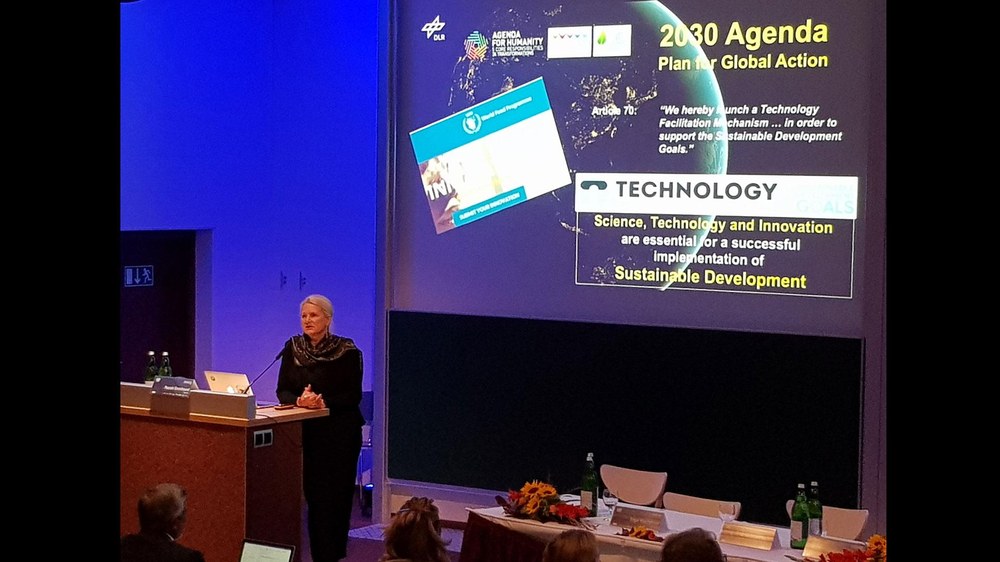Space – accessibility, diplomacy and cooperation

Focus: Space, sustainability
The 25th United Nations / Austria Symposium, entitled 'Space: A Tool for Accessibility, Diplomacy and Cooperation', was held in Graz, Austria from 2 to 4 September 2019. The anniversary event focused on the issues of space diplomacy and the use of space technologies for sustainable development and solving global challenges. Attending the event together with 90 delegates from the United Nations, research and space institutions, governments, the scientific community and the industrial sector was Pascale Ehrenfreund, Chair of the German Aerospace Center (Deutsches Zentrum für Luft- und Raumfahrt; DLR) Executive Board.
In her opening address, Professor Ehrenfreund emphasised the vital importance of cross-sectoral, interdisciplinary cooperation. As set out in the principles of Agenda 2030, research in particular, but applied technology and development planning as well, must be conceived and implemented from an integrated perspective. During her talk, Professor Ehrenfreund made special reference to the DLR project SDGs@DLR (SDG – Sustainable Development Goals). This project sets out a systematic framework within which to record the DLR expertise and research findings relevant to the technology and knowledge requirements of Agenda 2030 and associated treaties, such as the Paris Agreement. In this regard, application examples in the areas of global change, humanitarian aid and climate protection are of particular importance.
During the round table discussion on the use of space technologies and services for disaster management, Joachim Post from the International Relations Department at DLR offered insight into the work of the DLR Center for Satellite Based Crisis Information (ZKI) and the UN-SPIDER programmes of the United Nations Office for Outer Space Affairs (UNOOSA), where the main focus is placed on methods and services provided in close cooperation with users and international partners.
